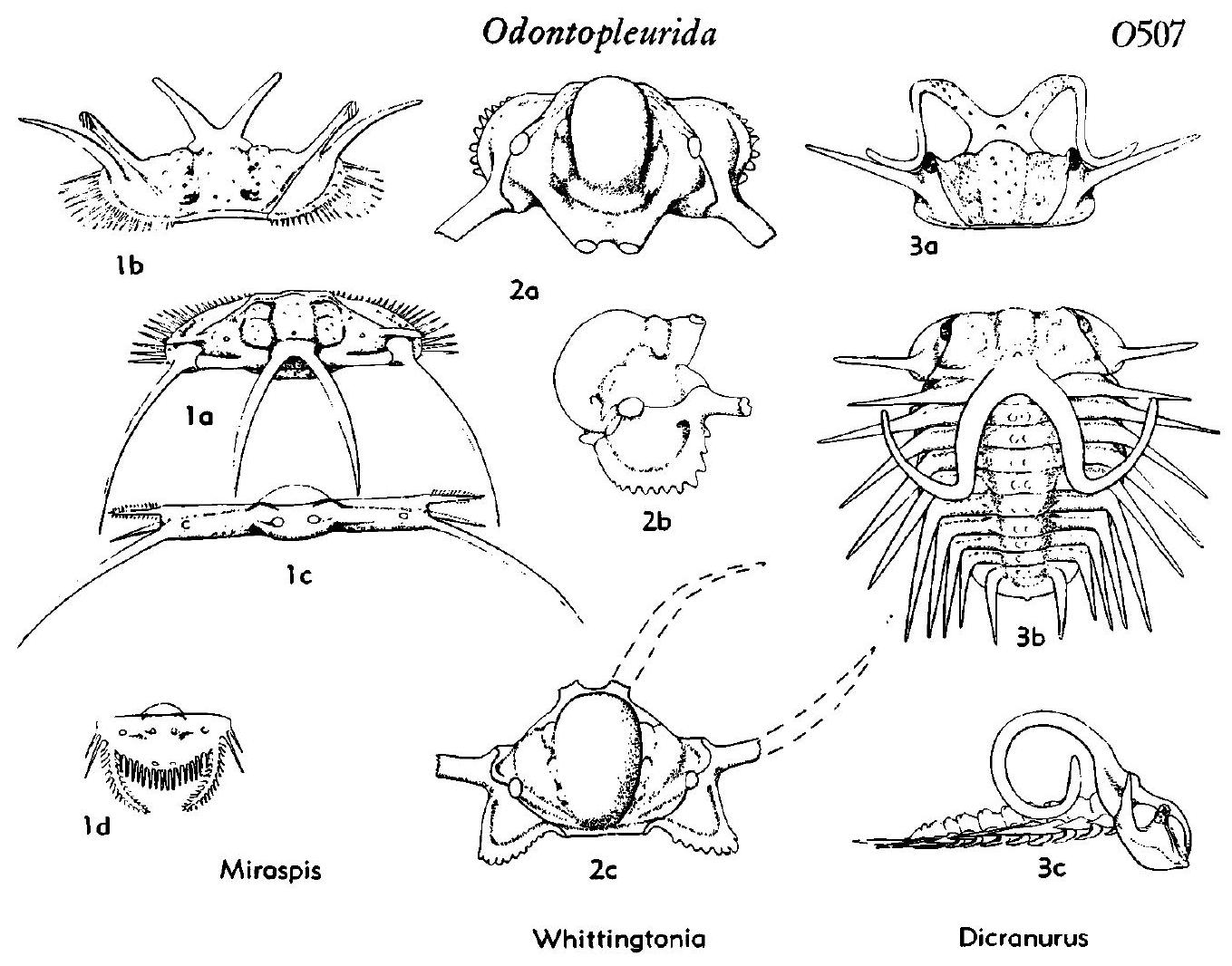Welcome to the Treatise on Invertebrate Paleontology!
Please enter a genera name to retrieve more information.

Dicranurus
Classification
Phylum:
Arthropoda
Subphylum:
Trilobitomorpha
Class:
Trilobita
Order:
Odontopleurida
Family:
Odontopleuridae
Subfamily:
Miraspidinae
Formal Genus Name and Reference:
Dicranurus CONRAD, 1840
Type Species:
Acidaspis hamata HALL, 1859
Images
(Click to enlarge in a new window)
Fig. 399, 3. D. monstrosus Barrande, M.Dev., Boh., 3a, ceph., anterior, 3b, c, exoskel., dorsal, right lateral, all x0.75 (496*, 1956).
Synonyms
Geographic Distribution
Eu.-N.Am.-Austral.
Age Range
Beginning Stage in Treatise Usage:
L.Dev.
Beginning International Stage:
Frasnian
Fraction Up In Beginning Stage:
0
Beginning Date:
378.9
Ending Stage in Treatise Usage:
M.Dev.
Ending International Stage:
Givetian
Fraction Up In Ending Stage:
100
Ending Date:
378.9
Description
Massive paired occipital spines recurved over thorax, small 3rd lateral glabellar lobes, eye lobes opposite basal glabellar lobes, high on genal regions, no lateral cephalic spines. Thorax with 9 segments, convex posterior pleural band running outward in curve gently convex forward, short, curved anterior pleural spines. Pygidium with single pair of border spines.
References
Museum or Author Information
Classification
Phylum:
Arthropoda
Subphylum:
Trilobitomorpha
Class:
Trilobita
Order:
Odontopleurida
Family:
Odontopleuridae
Subfamily:
Miraspidinae
Formal Genus Name and Reference:
Dicranurus CONRAD, 1840
Type Species:
Acidaspis hamata HALL, 1859
Images
(Click to enlarge in a new window)
Fig. 399, 3. D. monstrosus Barrande, M.Dev., Boh., 3a, ceph., anterior, 3b, c, exoskel., dorsal, right lateral, all x0.75 (496*, 1956).
Synonyms
Geographic Distribution
Eu.-N.Am.-Austral.
Age Range
Beginning Stage in Treatise Usage:
L.Dev.
Beginning International Stage:
Frasnian
Fraction Up In Beginning Stage:
0
Beginning Date:
378.9
Ending Stage in Treatise Usage:
M.Dev.
Ending International Stage:
Givetian
Fraction Up In Ending Stage:
100
Ending Date:
378.9
Description
Massive paired occipital spines recurved over thorax, small 3rd lateral glabellar lobes, eye lobes opposite basal glabellar lobes, high on genal regions, no lateral cephalic spines. Thorax with 9 segments, convex posterior pleural band running outward in curve gently convex forward, short, curved anterior pleural spines. Pygidium with single pair of border spines.
